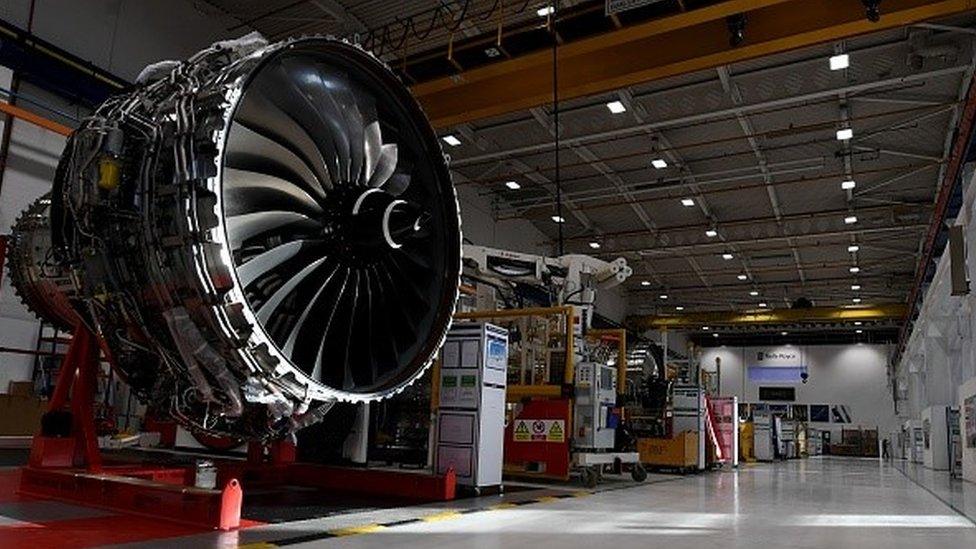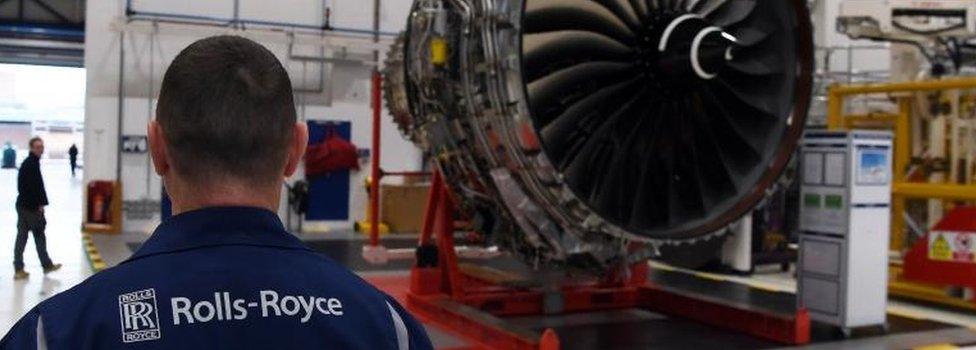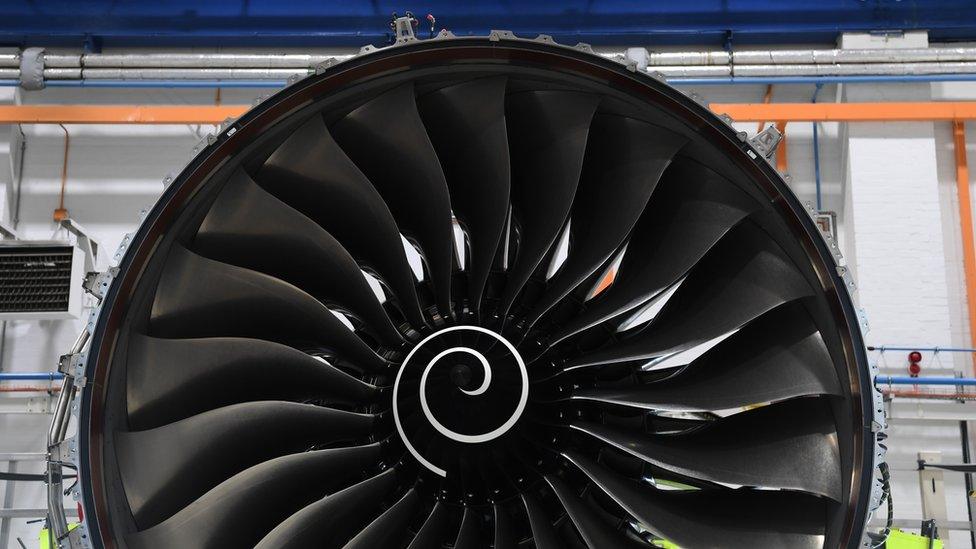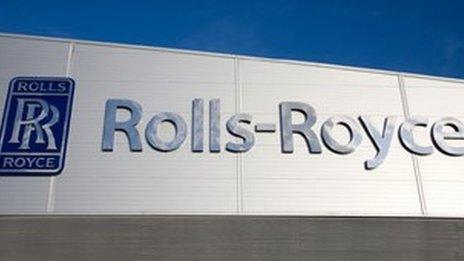Rolls-Royce reports record loss of £4.6bn
- Published

A bribery settlement and the fall in the pound have pushed engineering giant Rolls-Royce to a record loss.
The jet engine maker reported, external a loss before tax of £4.6bn for 2016.
However, once one-off costs have been stripped out, the company's underlying profit was better than many experts had predicted.
Rolls-Royce agreed to pay £671m to settle corruption cases with UK and US authorities and it has written off £4.4bn from currency related contracts.
Protection
Like many international businesses, Rolls-Royce usually "hedges" its bets to protect itself from fluctuating currency markets.
Most international aerospace contracts are priced in dollars, but, as a UK company, much of Rolls-Royce's costs are in pounds.
Simon Jack: Rolls Royce – The good, the bad and the ugly
It takes out long-term currency trades. These were designed to protect the firm against what seemed the most likely risk- the fall in the dollar - and many of them were put in place before the EU referendum was even announced.
Since the Brexit vote, the pound has fallen sharply against the US dollar, which has led to the accounting loss.
Underlying profits, which ignore these factors, fell to £813m, down from £1.4bn the previous year, although the fall was much less than many analysts had forecast.
'Savings and changes'
Rolls-Royce, which has been a completely separate company to the car-maker since 1971, said the outlook for this year was for a "modest performance improvement", while chief executive Warren East said more needed to be done to improve profit margins.
Mr East took over as chief executive in 2015 with the task of turning round the struggling company. It is in the process of carrying out a major cost-cutting drive.
"We must ensure our wide ranging business transformation programme delivers the full benefits expected, not only in terms of cost savings but also the cultural and behavioural changes necessary to ensure the transformation is sustained and high standards of business conduct are maintained," said Mr East.
"These are essential if we are to become a more trusted, resilient company."
Rolls-Royce has apologised "unreservedly" for the corruption cases, which spanned 25 years, and involved illegally using local middlemen and paying bribes to win deals in Indonesia, Thailand, China and Russia.

Analysis: Dominic O'Connell, Today business presenter

In the whacky world of the City, bad headlines can sometimes be ignored.
That has been the case with Rolls-Royce; when it said last month it would pay £671m to settle a long-running bribery investigation its shares went up 6%.
Investors were relieved the worst was behind it, and the same may apply to today's whacking loss. While it underlines the complicated nature of Rolls-Royce's business - it has a £30bn currency hedging book, designed, ironically, to flatten out volatility, and has unkindly been described as a hedge fund with an engine maker attached - shareholders will focus on underlying trading.
There, the news is a bit better than expected, with cashflow and profit both slightly ahead of market expectations.
After an annus horribilis (or two) Rolls-Royce still has some big strategic questions. It is still expanding production at a breakneck pace, which drains its reserves, and must still decide whether to take the drastic medicine advocated by some and shed some of its operations, such as the marine engine operation.
Warren East, the chief executive, gave a hint that he is coming to some conclusions on the future of the company - he said he expected to set out a "vision" in the next few months.

- Published14 February 2017
- Published18 January 2017

- Published1 December 2016
